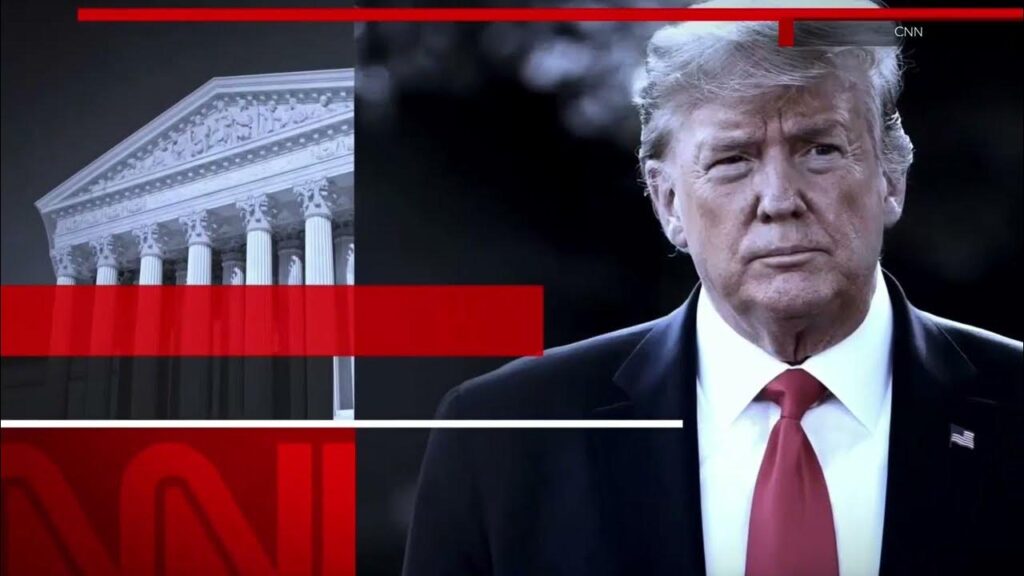Trump already controls of the Legislative Branch through his obedient Republican majority. Now he’s going after the Judiciary. And the courts are coddling him while he thumbs his nose at them, including at the Supreme Court.
The Trump administration has violated 6 court orders requiring it to stop or reverse its illegal activities, from freezing federal funding to the illegal deportation of innocent U.S. residents. It’s clear that the Trump administration is challenging the Constitution’s core mandate of separation of powers. However, although the courts could put the violators in jail for contempt of court, they are moving at a snail’s pace, while the independence of the Judiciary is at stake.
The main culprit is the Supreme Court. The United States District Court for the District of Maryland ordered the Trump administration to “facilitate and effectuate” the return of Abrego Garcia to the United States. On appeal, the Supreme Court ordered the Trump administration only “to facilitate” Garcia’s return and omitted the word “effectuate.” It also held that the meaning of “effectuate” in the District Courts opinion was unclear and “may exceed its authority,” and warned the District Court to give “due regard for the deference owed to the Executive Branch in the conduct of foreign affairs.” The Supreme Court then delayed sanctioning the violators by remanding the case to the District Court to clarify what it meant by “effectuate.”
Trump then seized on the Supreme Court’s language by arguing that the it instructed the District Court “to respect the president’s authority … to manage foreign policy” as he kept thumbing his nose at the entire Judiciary.
Adding to the delay, an Appeals Court temporarily blocked a contempt inquiry by a District Court into Trump’s defiance of its order to turn around two planes carrying alleged Venezuelan gang members to El Salvador’s most brutal prison in the Western Hemisphere.
Had the Supreme Court just affirmed the District Court’s decision, Courts that issued the orders Trump ignored would have been free to pursue discovery and impose sanctions, including jail, on the violators, which would maintain the Judiciary’s independence required by the Constitution.
Although a District Court Judge found probable cause that the Trump administration acted in criminal contempt of court, the Supreme Court has held that pardoning federal crimes is an exclusive Constitutional authority given to the President that cannot be impaired by any court. In other words, Trump could pardon the offender.
But no judge has held any member of the administration in civil contempt, which would allow the judge to put violators in jail until they complied with the judge’s order.
That could change soon. U.S. District Judge Paula Xinis held a hearing on whether individuals in the administration have acted in contempt of court by ignoring her order to bring back Abrego Garcia from El Salvador. If Xinis opts for civil contempt, President Trump could not pardon the offending party, and immunity wouldn’t apply to the offense. Xinis, however, must wait until she responds to the Supreme Court’s remand to her.
The power to compel compliance with court orders, including for contempt, is backstopped by the ability to jail people who defy them. But judges have traditionally relied on the U.S. Marshal’s Service which reports to both the courts and the attorney general for enforcement, who is part of the Department of Justice. Sadly, it’s virtually certain that Attorney General Pam Bondi wouldn’t enforce a court’s sanction for civil contempt. The courts, however, have another option.
The Supreme Court has unanimously held that the courts possess the authority to appoint a private attorney outside the Executive branch to prosecute civil contempt if the Executive branch refuses to do so.
The Supreme court has also held that “the ability to punish disobedience of judicial orders” is “essential to ensuring that the Judiciary has a means to enforce its own authority without complete dependence on other Branches.”
Finally, there is a compelling Constitutional basis for holding that a president cannot pardon people guilty of criminal contempt for violating a court order. Although the Trump-leaning majority of the Supreme Court has held that a presidential pardon cannot be impaired by any court, the Framers could not have intended the pardon power to usurp the Constitution’s core requirements of checks and balances and separation of powers, which is the framework within which the Constitution requires the government to operate. A pardon that upends the separation of powers and makes the courts’ ability to enforce judicial orders subject to the whim of the Executive branch violates the essential mandates of the Constitution.
Indeed, the Supreme Court has held and repeated in 2022 that “the ability to punish disobedience of judicial orders” is “essential to ensuring that the Judiciary has a means to vindicate its own authority without complete dependence on other Branches.







